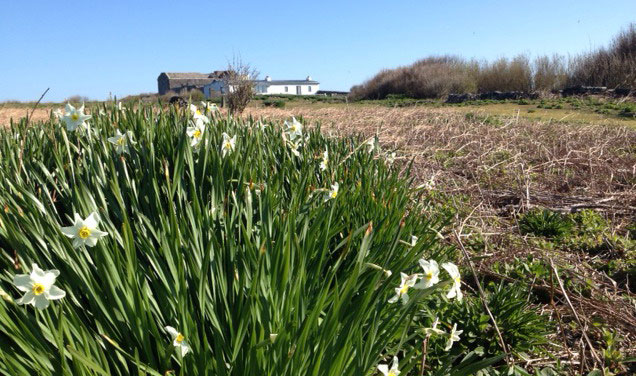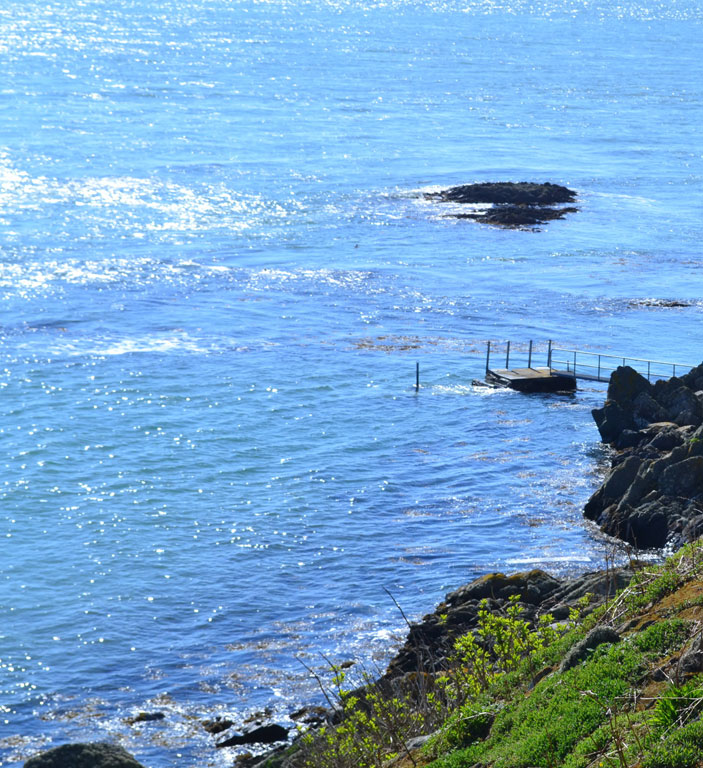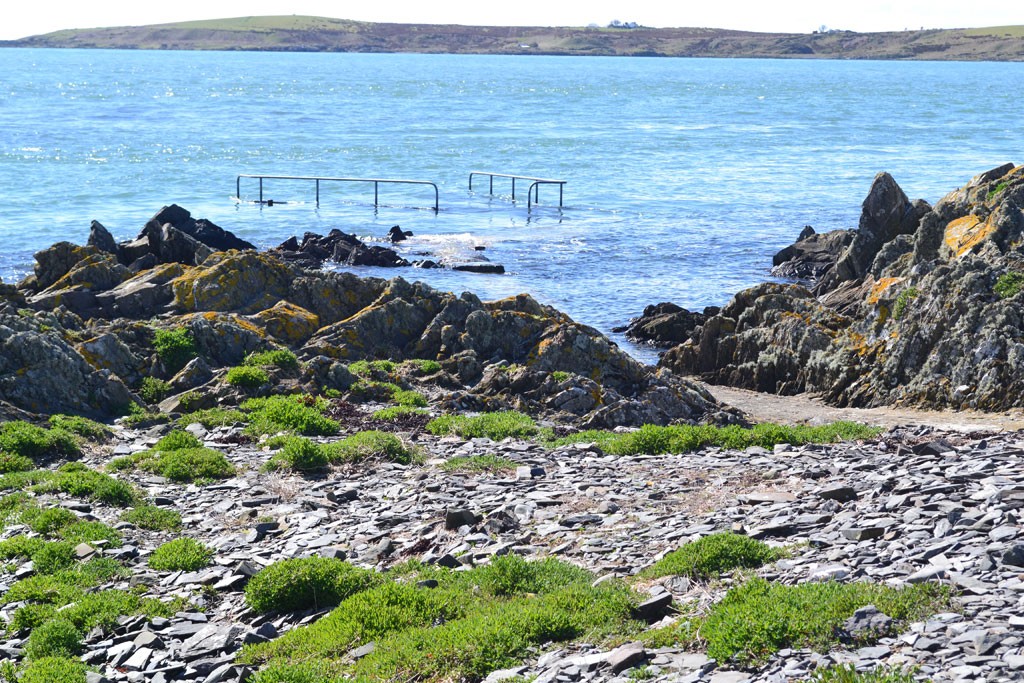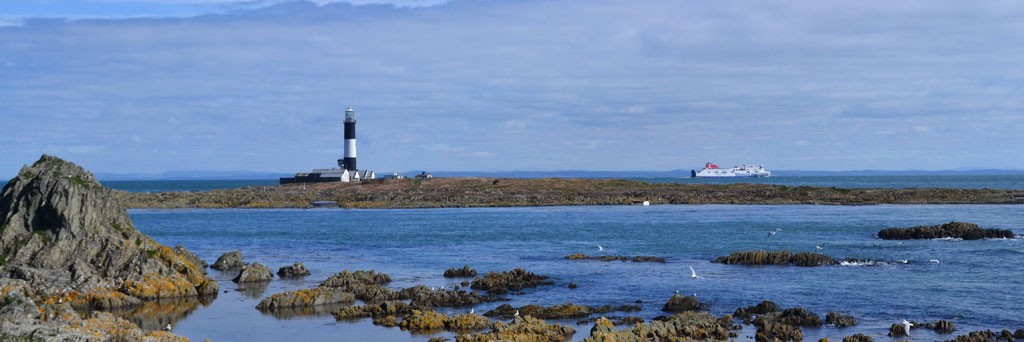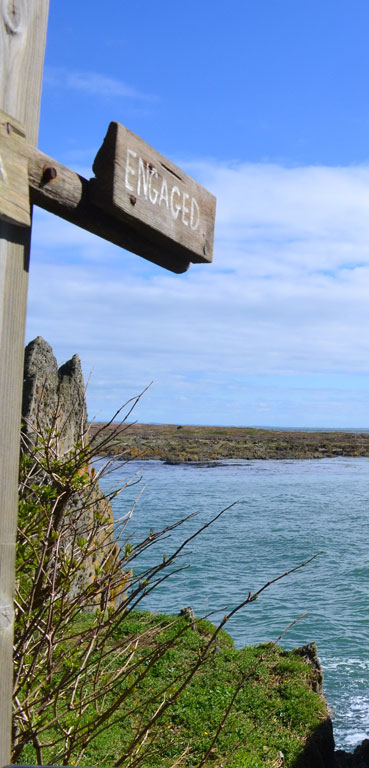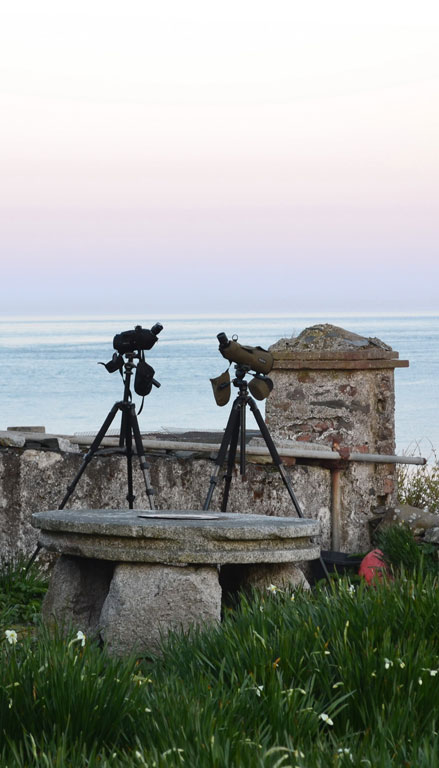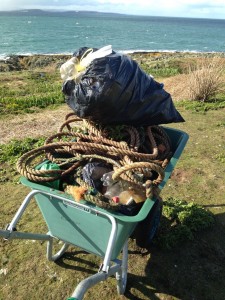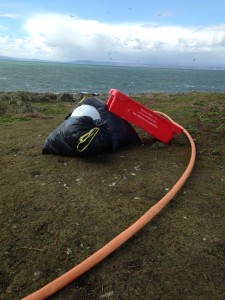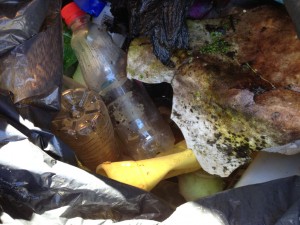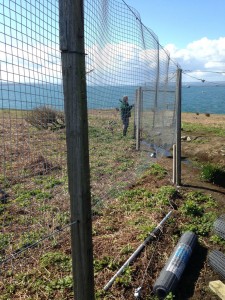Weekend Visit of April 17th – 19th
- Five species added to ringing list including, Pied Wagtail, Hooded Crow, Goldfinch, Blackcap and Reed Bunting.
- Crystal clear night sky with great views of the International Space Station (ISS), Milky Way Galaxy, and moons of Jupiter.
- New door frame fitted to Gully Trap.
- First Puffin of 2015 seen.
- Migration underway – notable movements (>40) of Hooded and Carrion Crows, and three Wheatear seen.
Sometimes the weather can be almost too good!
The second weekend team of 2015, covering Friday 17th – Sunday 19th April, certainly got spectacular early spring weather. The clear air in the mornings gave the eye a full sweep from Goat Fell on Arran in the North, to the Calf of Man in the south; a panorama from the old lighthouse stump which easily covered over one hundred miles. This is not, however, the weather that a ringing team necessarily want! When the conditions are so clear the birds often keep moving. Despite this, the weekend provided a steady trickle of birds through the nets and traps. Notable were the first Blackcap and Goldfinch of 2015, and an exciting catch of three Hooded Crow in the walk-in Crow-trap (feeding on old smelly cheese!). Other migrants included two Willow warbler, and singles of Chiffchaff and Goldcrest.
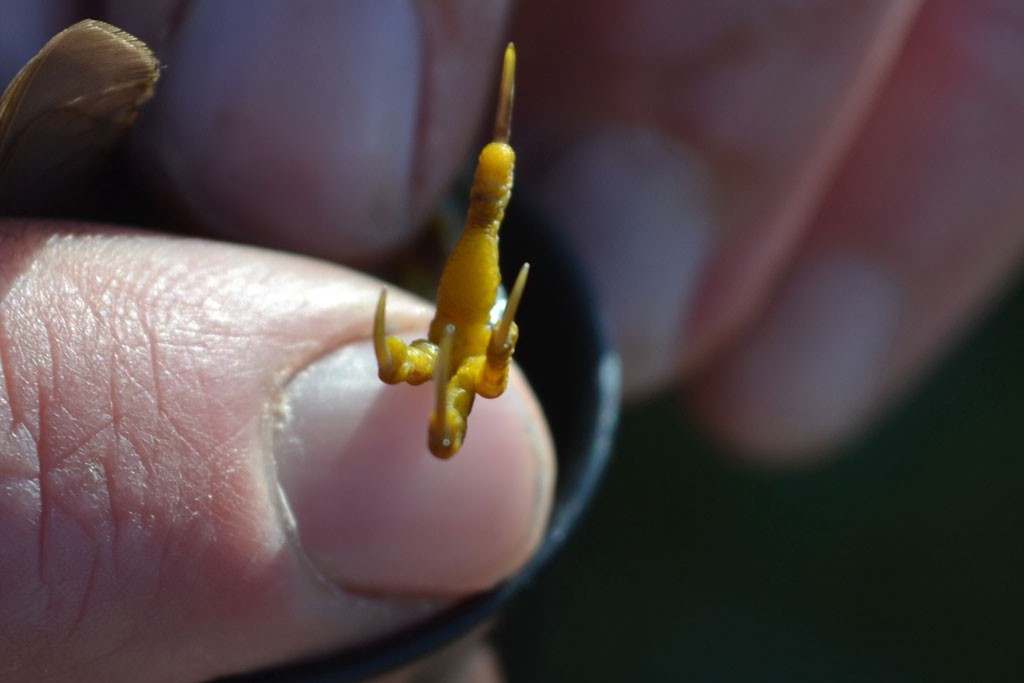
This photo shows the rarely seen underfoot of a Willow warbler – a vibrant yellow sole.
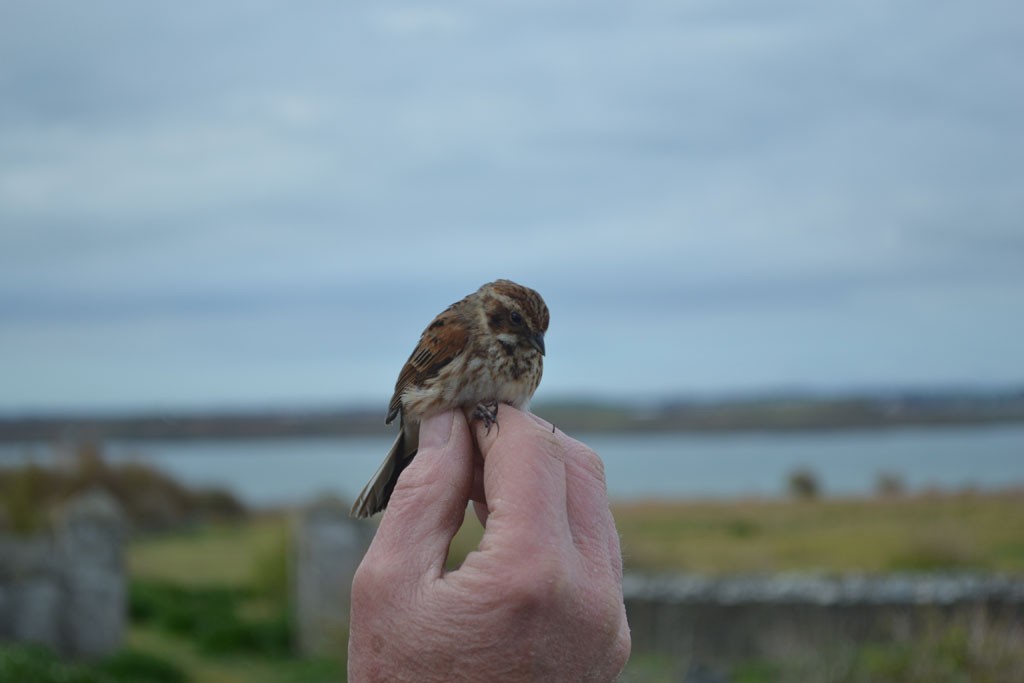
Several pairs of Reed Bunting breed on the island. A female was ringed on Sunday morning.
Regular visitors may bemoan the night-time loss of the familiar sweep of the beam from the Mew Island Lighthouse, recently decommissioned and replaced with a fixed flashing light. The night sky, however, somehow seemed enhanced. The Milky Way was clearly visible, and the team also tracked a four-minute transit of the International Space Station across the southern sky.
The spring flowers are really starting to show. The early double-flowering daffodils have already turned, but the narcissi probably have another few weeks left.
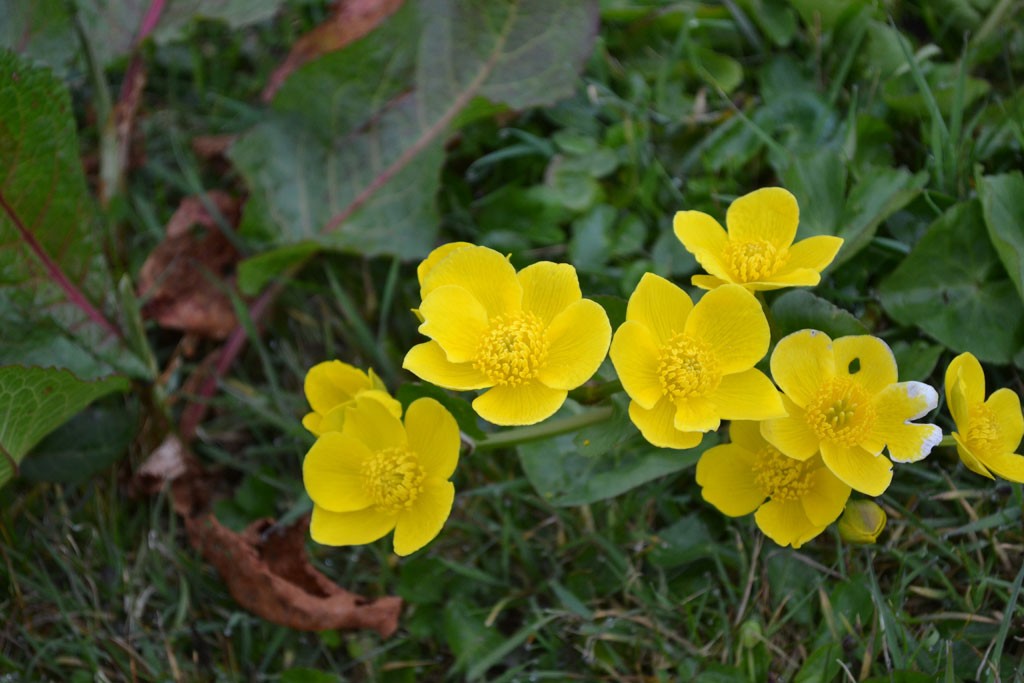
Clumps of Marsh Marigold can be found in wet areas.
Bird lists and migration logs are updated every day. Large numbers of crows – mainly Hooded, but also some Carrion – were noted on passage. The first Sandwich Tern was heard off Mew, and a Puffin dropped into the sound between Lighthouse and Mew Island on Sunday afternoon. Three Wheatear spent an hour on Sunday morning feeding around the front of the Gully trap.
Some island views…
East jetty under high tide.
Occupied Loo with a View…
Scopes ready for the next species…
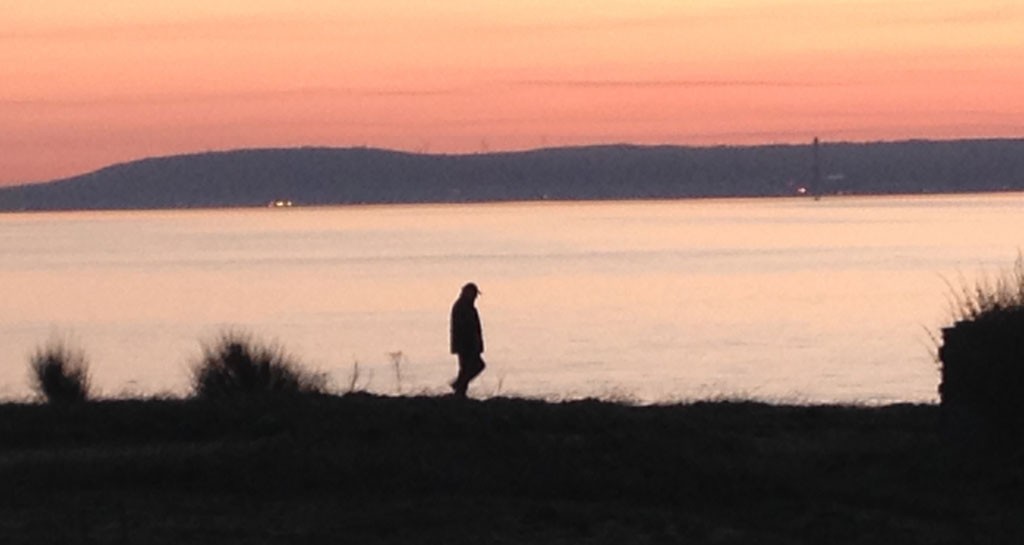
Chris closing the nets on Saturday evening.
If you would like to arrange a weekend stay, contact our Bookings Secretary – davidgalbraith903@btinternet.com
Remember, your membership support is essential to us. Please consider joining or renewing your membership today!

